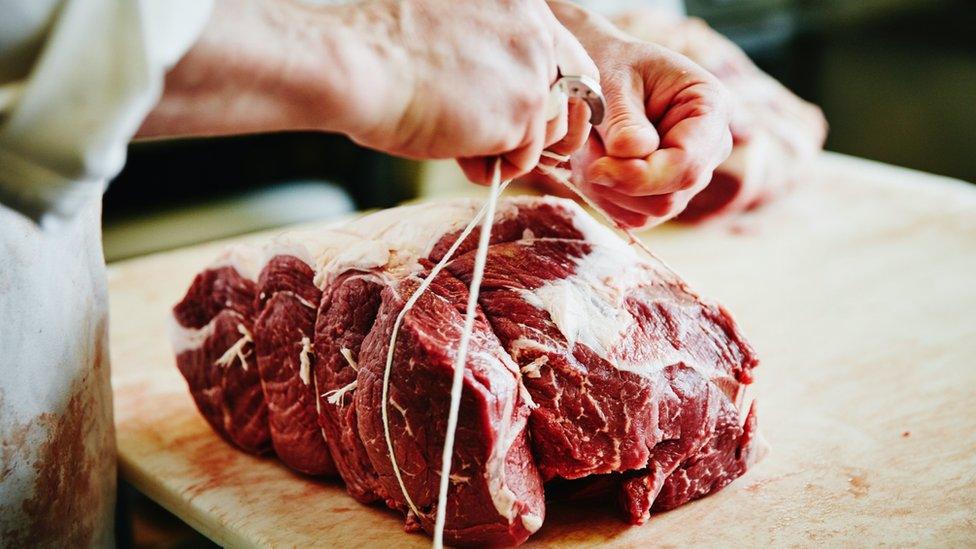Gas crisis: Pig farmers fear they may have to cull animals
- Published
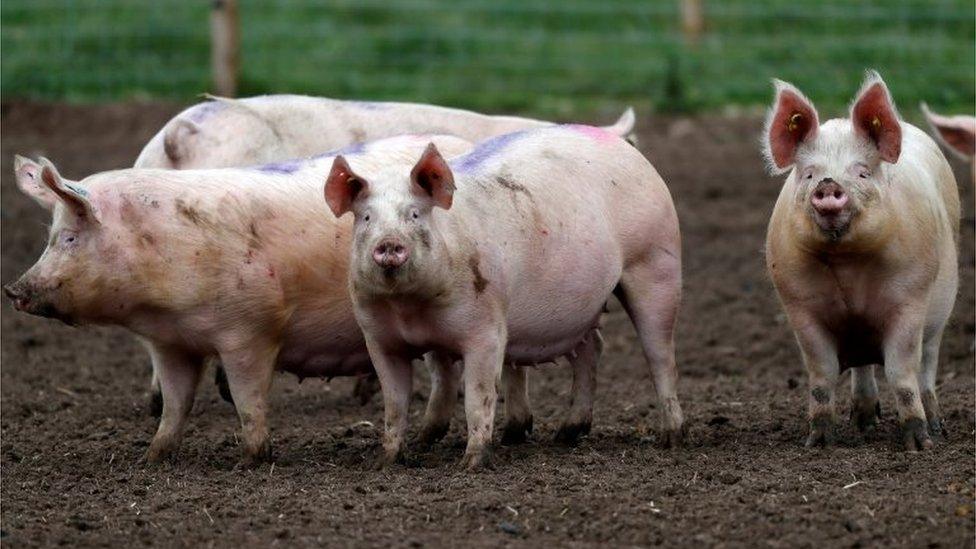
Pig farmers fear they may soon have to start killing their animals because of a carbon dioxide shortage at abattoirs caused by soaring gas prices.
CO2 is widely used in the food and drinks industry, including for stunning animals at abattoirs before slaughter.
But some CO2 suppliers have halted production due to rising energy costs, creating a huge backlog of pigs that at some point will have to be killed.
A food and drink trade body says the UK might need to subsidise CO2 production.
Farmer Kate Morgan told the BBC on Monday "thousands of pigs are backlogged on farms. If we can't kill our pigs in an abattoir, then unfortunately we will be resorting to killing them on farms".
Carbon dioxide used by the meat industry is a by-product of fertiliser production. The gas is also used to keep food fresh as well as in dry ice and fizzy drinks.
CF Industries, the US-based business which produces about 60% of the UK's food grade CO2, has suspended production at two UK fertiliser plants. Norwegian firm Yara has also cut production at a number of European factories.
'Pretty dire'
Ms Morgan, who runs a pig farm near Driffield, east Yorkshire, told BBC 5 Live's Wake up to Money programme the situation for the industry was already "pretty dire" because of labour shortages. Now, meat shortages at supermarkets are a real possibility, she said.
"Abattoirs have about a week's supply of gas. It's a chain: We have constantly got pigs coming out of the breeding herd that need to go in homes. Those homes need to be emptied."
Her farm sends about 1,500 pigs each week to abattoirs.
Killing her own animals is not something she can bear thinking about. "I can't even begin to think how we would do it. I don't want to put people who work for us in that situation," Ms Morgan said.
On-farm killing means the meat is not something that would be able to enter the food supply chain. "It would be wasted," she said.
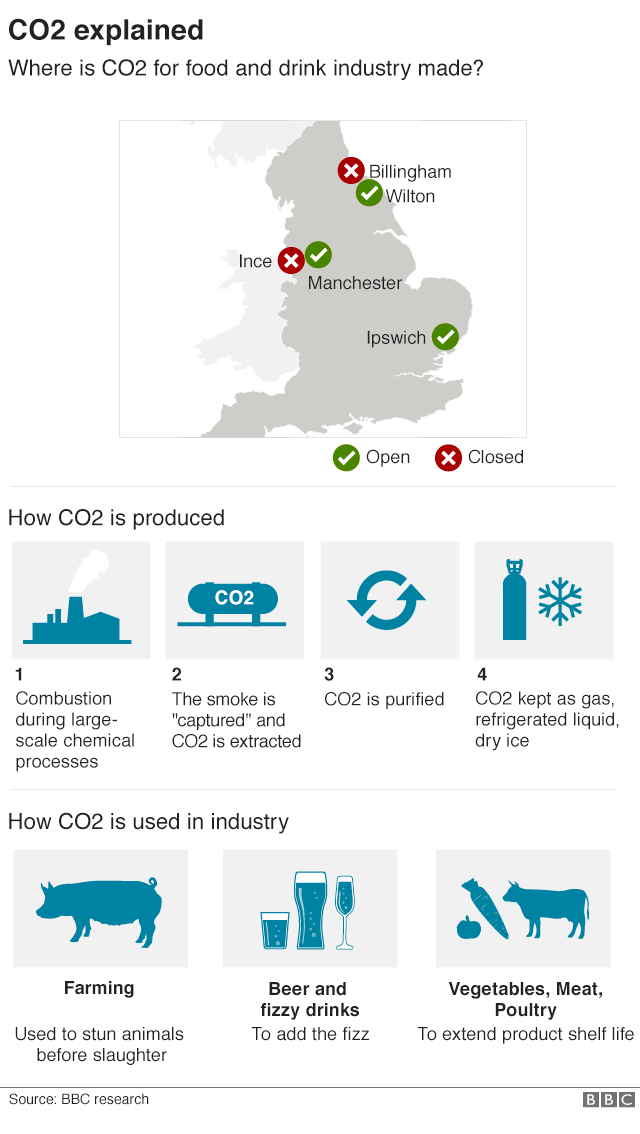
It is estimated there are about 100,000 pigs left on farms that would otherwise have been sent for slaughter, with the backlog having started building up weeks ago because of staff shortages.
Andrew Saunders, a director at the UK's biggest pig producer, Pilgrims Pride, said there is no alternative to stunning with CO2. "It is an essential part of the process," he told the BBC.
Mr Saunders, also chairman of the British Meat Processor Association, said: "80% of pigs in the UK are slaughtered in about 10 abattoirs, and those abattoirs all use CO2 stunning systems. We already face some challenges regarding keeping those abattoirs operational - some shortage of labour in those plants."
CO2 subsidies
He said pigs can be kept on farms for only "a very short period of time. They go beyond their target slaughter weight, they're then unsuitable for size of packets we have for our customers".
He added: "We hope the government can turn around to intervene to get these CO2 plants up and running again. The particular plants in question supply about 60% of all UK needs and something's required here to get this going pretty quickly."
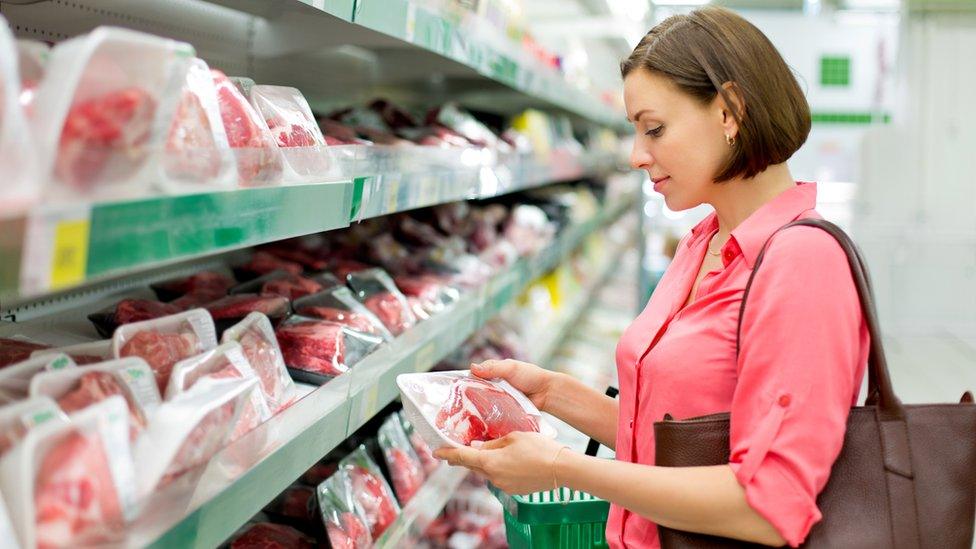
It is not just the pig industry facing problems, however. On Monday, the Food and Drink Federation (FDF) warned the whole sector faces disruption.
In a letter to Environment Secretary George Eustice, the FDF's chief executive, Ian Wright, said: "Important parts of the food and drink supply chain - already under significant pressure from the impacts of labour shortages, particularly HGV drivers - are now seriously compromised by disruptions in the supply of CO2.
"Across industry, there is a united view that the situation is worsening with little prospect of additional CO2 supply unless the UK government intervenes."
If ministers are considering financial help to support the energy sector, Mr Wright said then "any subsidies made available must also be considered for the manufacturers of fertiliser to ensure there is no further deterioration across the UK food and drink supply, and production can be restored".
There are worries that food and drink shortages are starting to appear on supermarket shelves, with the problem expected to worsen in the run-up to Christmas without action.
Richard Walker, managing director of Iceland, said his supermarket is building up stocks and while there is no immediate shortage problem, he told the BBC the CO2 situation needed to be sorted quickly.
"The thing that has shocked me is that 60% of [CO2] production is concentrated in two factories which are both owned by a foreign business.
"This is something that's clearly critical to national security - not just food but also healthcare as well. So it seems quite perplexing that it's at the whim of a private enterprise in terms of whether it's profitable or not and therefore whether they produce the stuff or not."
The British Soft Drinks Association said if manufacturers could not get hold of CO2 supplies, "after their reserves have run out, production of certain products will have to cease".
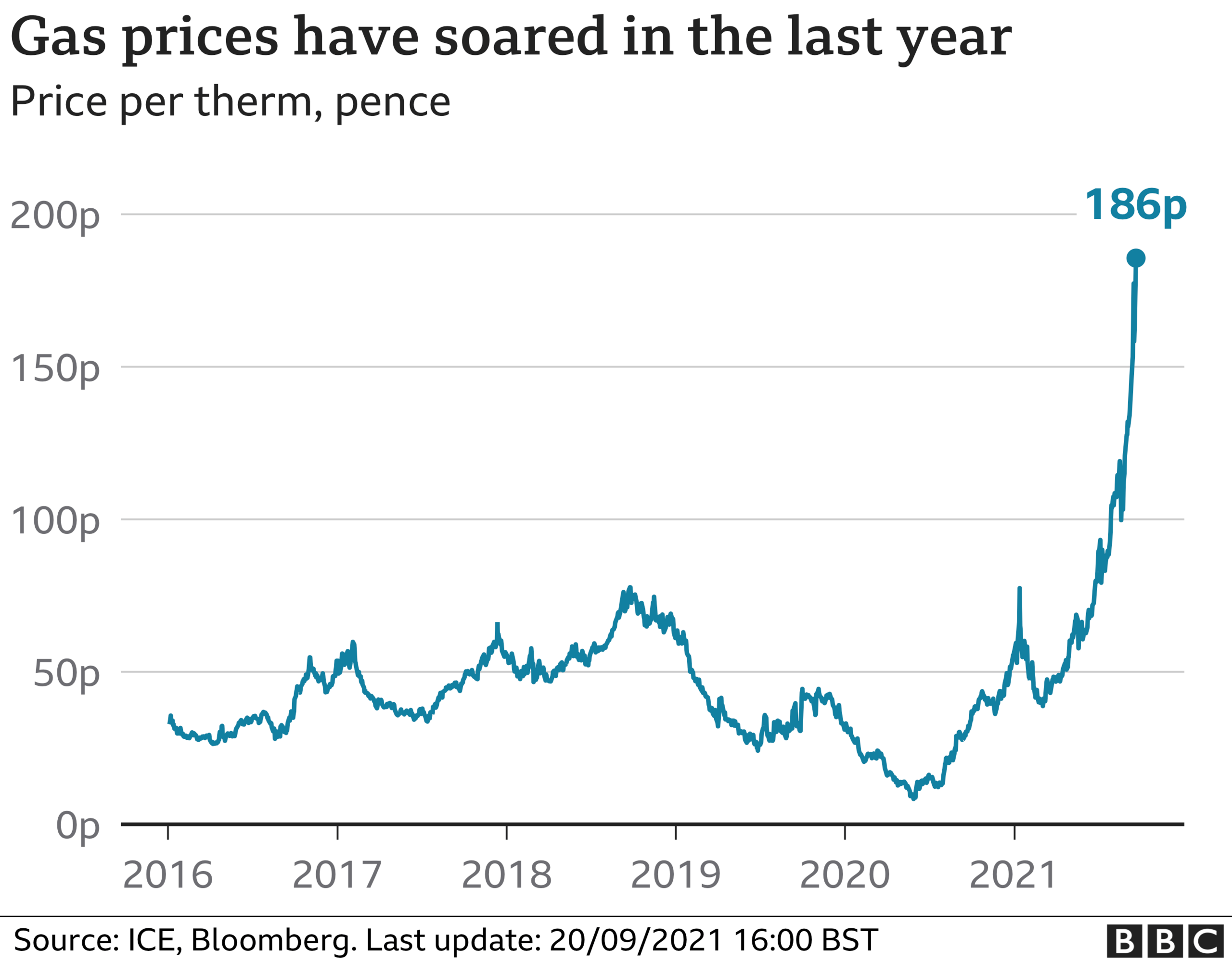
Tony Will, chief executive of CF Industries, has held talks with the government over production at its two fertiliser plants, but the outcome is not clear.
Business Secretary Kwasi Kwarteng tweeted that he had met Mr Will and "discussed the pressures the business is facing and explored possible ways forward to secure vital supplies, including to our food and energy industries".
Wholesale prices for gas have surged 250% since January, with a 70% rise since August alone, leading to calls for support from the industry and the collapse of some smaller energy firms.
Prime Minister Boris Johnson, who is in New York for a UN General Assembly meeting, said the problem with wholesale prices was "temporary".
He added that he was "very confident" in the UK's supply chains and that market forces should be "very, very swift" in fixing the issues but that government would help where it could.
A statement from the government said: "We continue to monitor supplies across critical sectors and are in regular contact with industry on their CO2 supplies.
"The UK benefits from having a diverse range of gas supply sources and we have sufficient capacity to more than meet demand. We do not expect gas supply emergencies this winter."
Related topics
- Published21 September 2021

- Published17 September 2021
